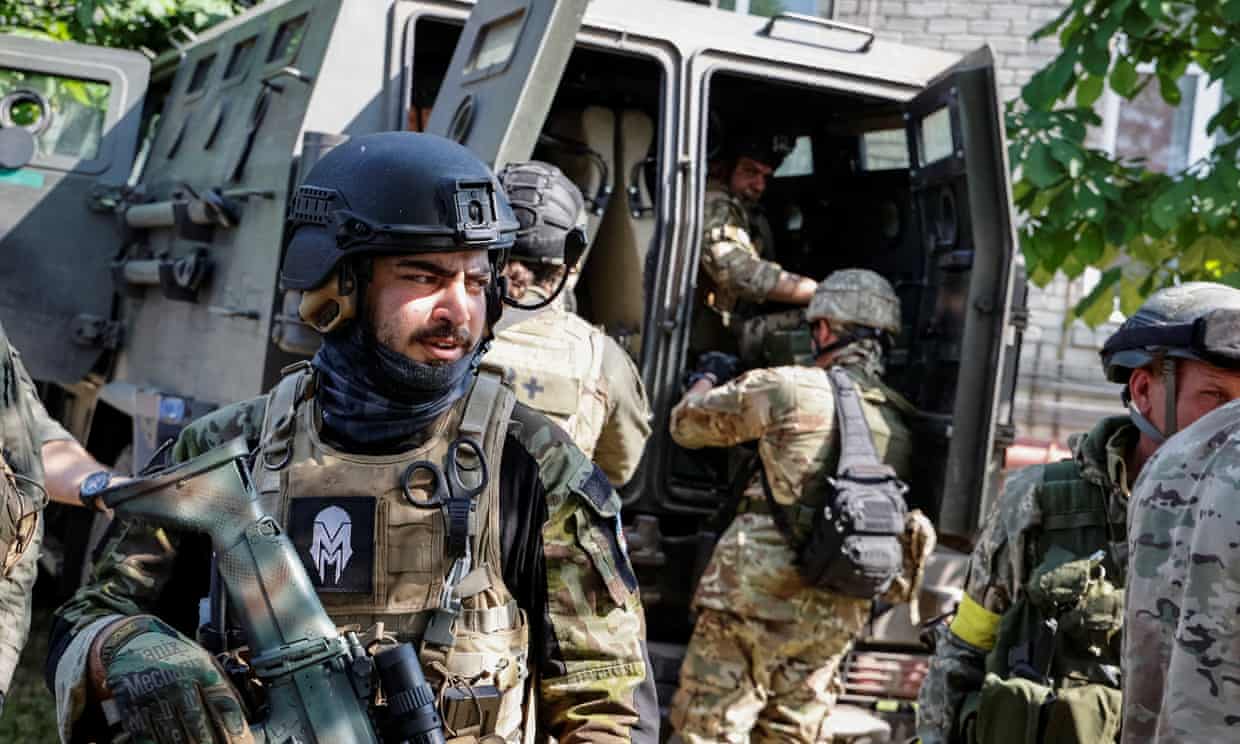*** MILITARY SITUATION ***
-Russia is now achieving tactical success in Donbas and controls more than 90% of Luhansk, the UK Ministry of Defence has said in its latest intelligence report released early this morning. Russian forces have generated and maintained momentum and currently appear to hold the initiative over Ukrainian opposition. Russia controls over 90% of Luhansk oblast and is likely to complete control in the next two weeks. Russia has achieved these recent tactical successes at significant resource cost, and by concentrating force and fires on a single part of the overall campaign.
-Russian forces are currently occupying about 20% of Ukraine’s territory, President Volodymyr Zelenskiy said in a video address to the Luxembourg parliament. The front lines of battle stretch across more than 1,000km (620 miles), Zelenskiy said, adding that 100 Ukrainians are dying on a daily basis in eastern Ukraine, and another 450-500 people are wounded.
-Some 60% of the infrastructure and residential buildings in Lysychansk, one of only two cities in the east still under at least partial Ukrainian control, have been destroyed from attacks, according to a local official. Oleksandr Zaika, head of Lysychansk City Military-Civil Administration, said 20,000 people are left in the city, down from a pre-war population of 97,000.
-Russia has accused the son of a Conservative MP of involvement in the killing of a Chechen brigade commander in Ukraine. Russia’s National Guard said one of its commanders, the Chechen fighter Adam Bisultanov, was killed on 26 May in a clash with a “group of mercenaries from the UK and the USA” that included the “son of a British parliamentarian,” Ben Grant.
 |
| Members of foreign volunteers unit, which fights in the Ukrainian army, near Sievierodonetsk |